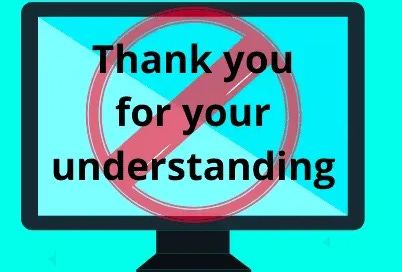Hey! Stop with the “Thank you for understanding.”
I date the phrase back to the beginning of this decade, associating it with disruptions in routine and expectations caused by COVID-19. The writer conveying such a message explains that an unwelcome change is pending, and in anticipation of how it’s going to land, says, “Thank you for understanding.”
I hate that.
It’s presumptuous. There’s a kind of underlying logic that goes like this: “I know you don’t like what I’m saying, but to question the message I’m delivering would be unseemly at best and downright loutish at worst. Since I know you want to be seen as respectful and cooperative [and, in some of the worst uses of this terminology, politically correct], you will refrain from responding in a way that I’m telling you in advance will be received badly. So I’m telling you, in what I regard as the nicest possible way, to just suck it up, pal.”
I understand that as the bearer of bad news, you may just be the messenger. Or simply doing your job. Fair enough. But no emotional manipulation, please. Just say something like “I regret any inconvenience.” And leave my reaction to me unless or until I respond.
At bottom, I think “Thank you for your understanding” has a bad-faith elitism about it. The phrase is used in the context of a unilateral imposition of power over which the recipient has no control, and in which the wielder of that power does not want to be seen as wielding it. There are any number of times or ways in which this may be appropriate or necessary. But trying to preempt skepticism or hostility adds insult to injury.
Whether or not you understand, thanks for listening.




"No problem" in response to a Thank You is my fingernails across the blackboard event. But TYFU is a close second.